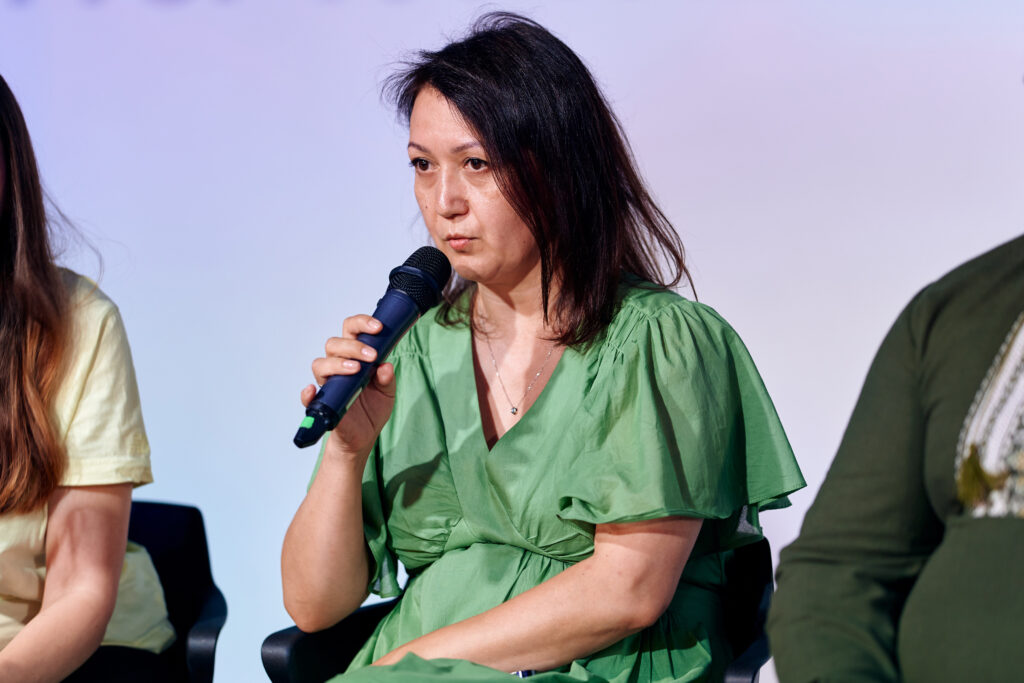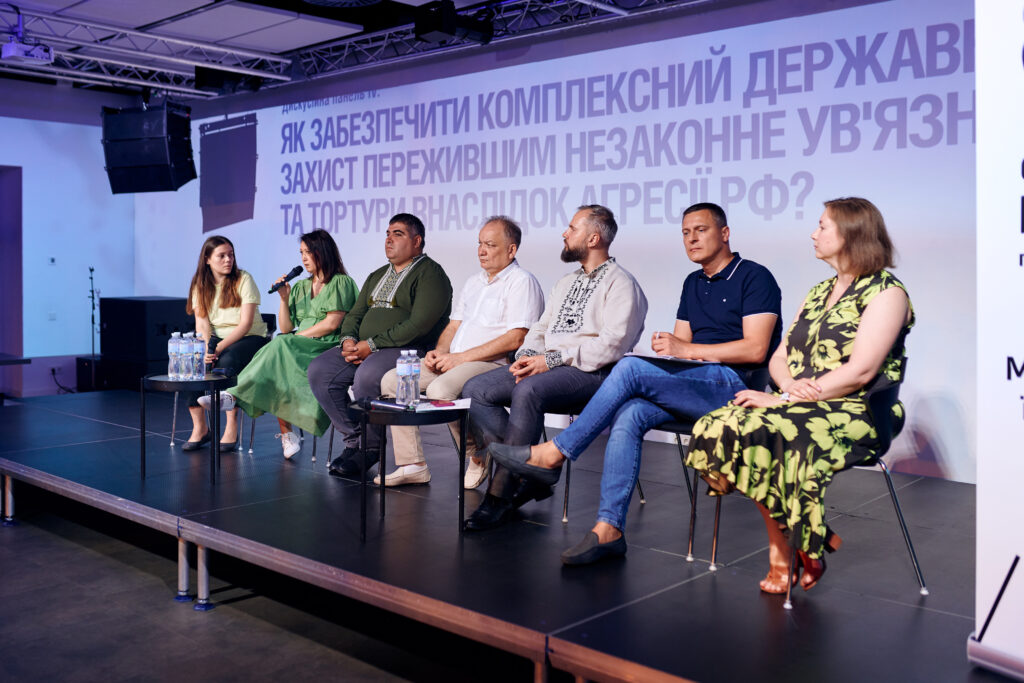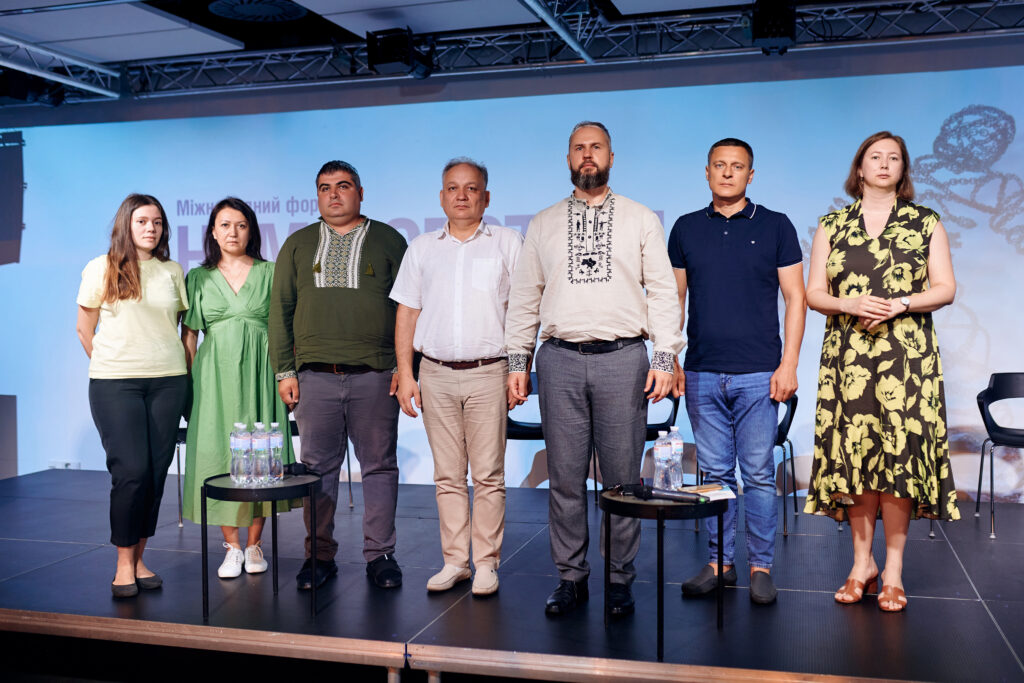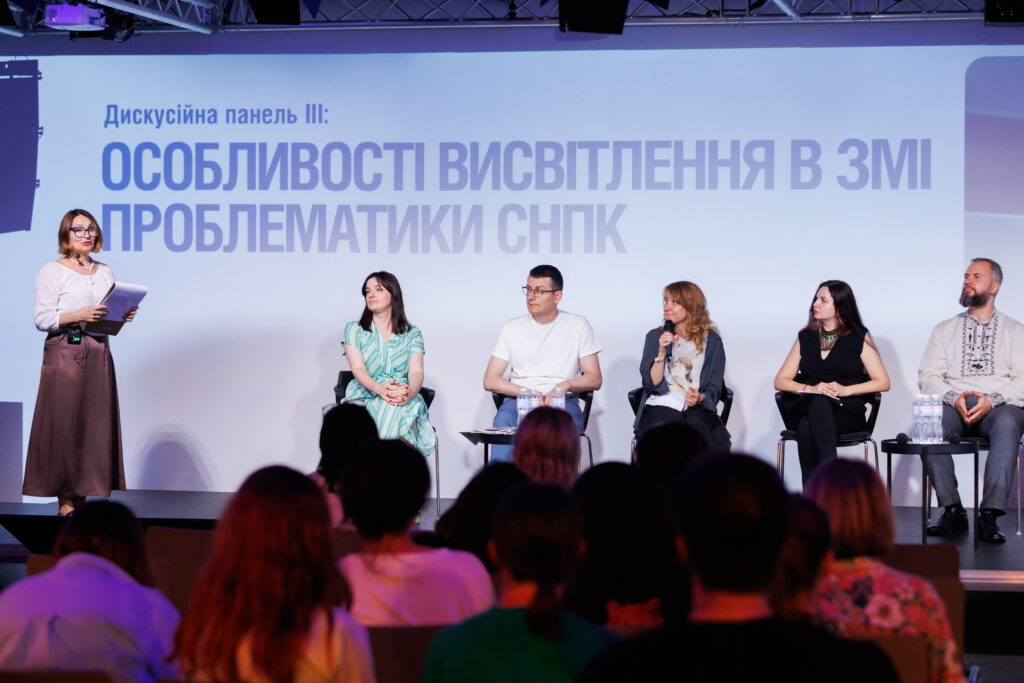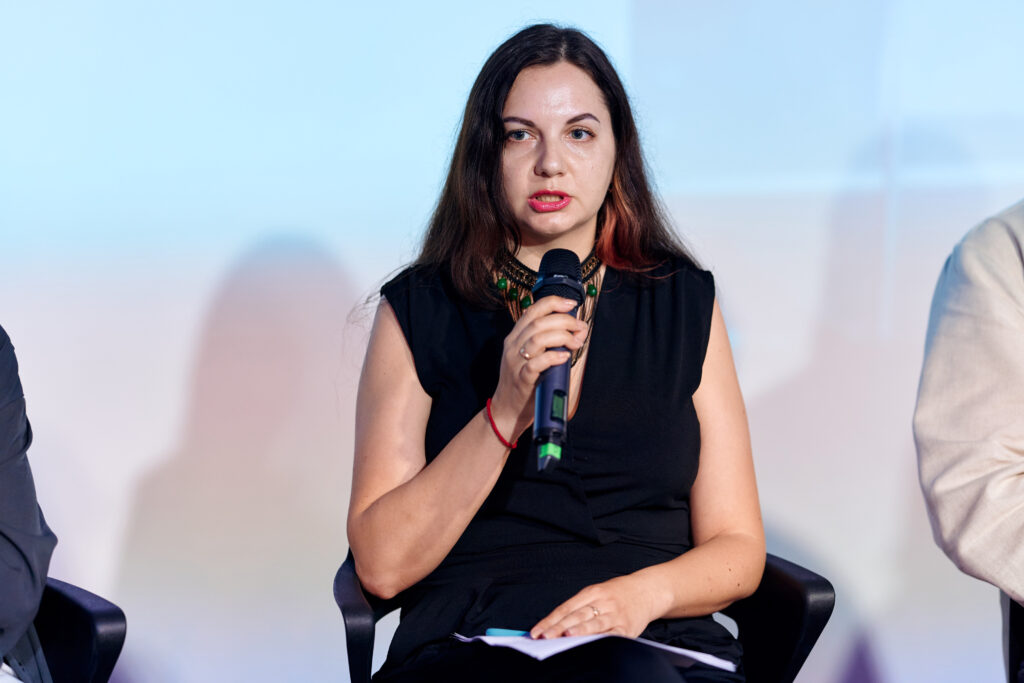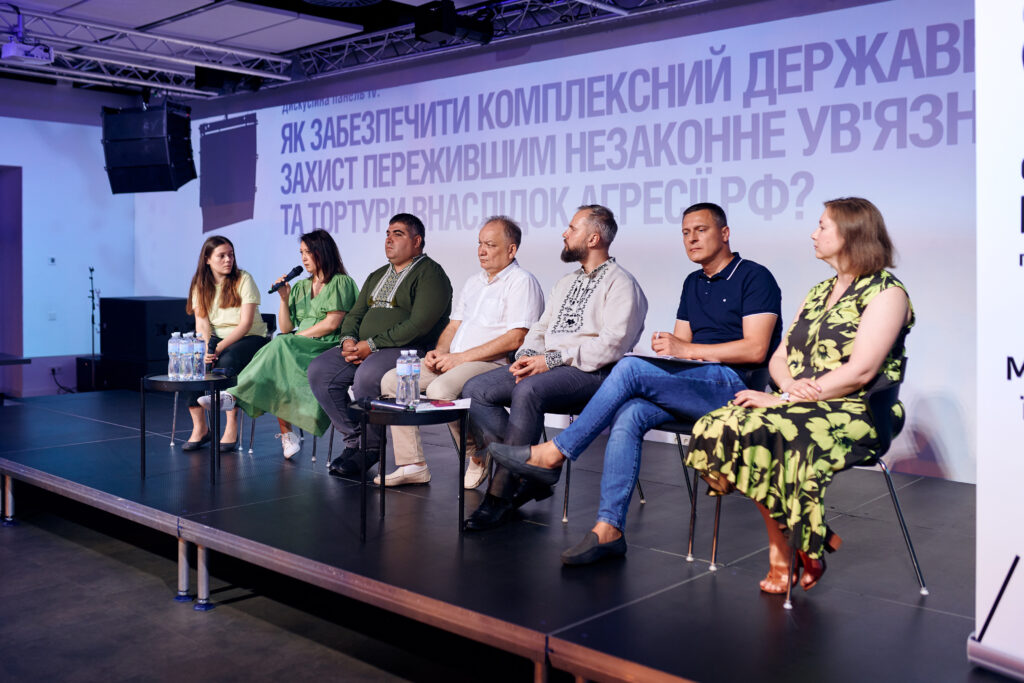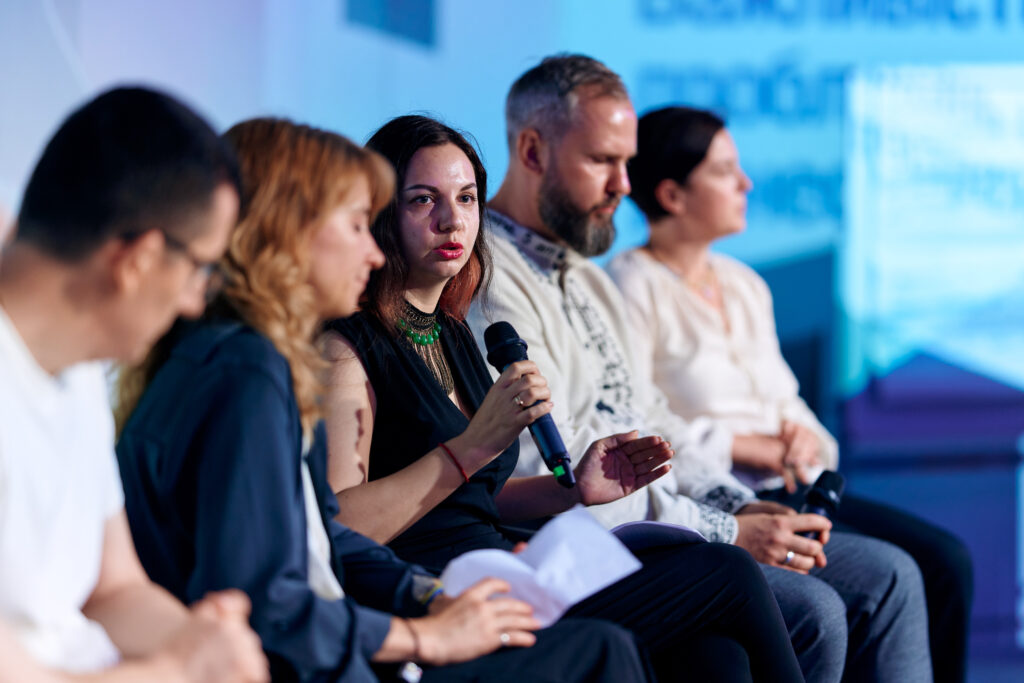“Find a balance between informing the public and respecting the victims”. Natalia Yashchuk and Anna Trushova at the International Forum on Sexual Violence
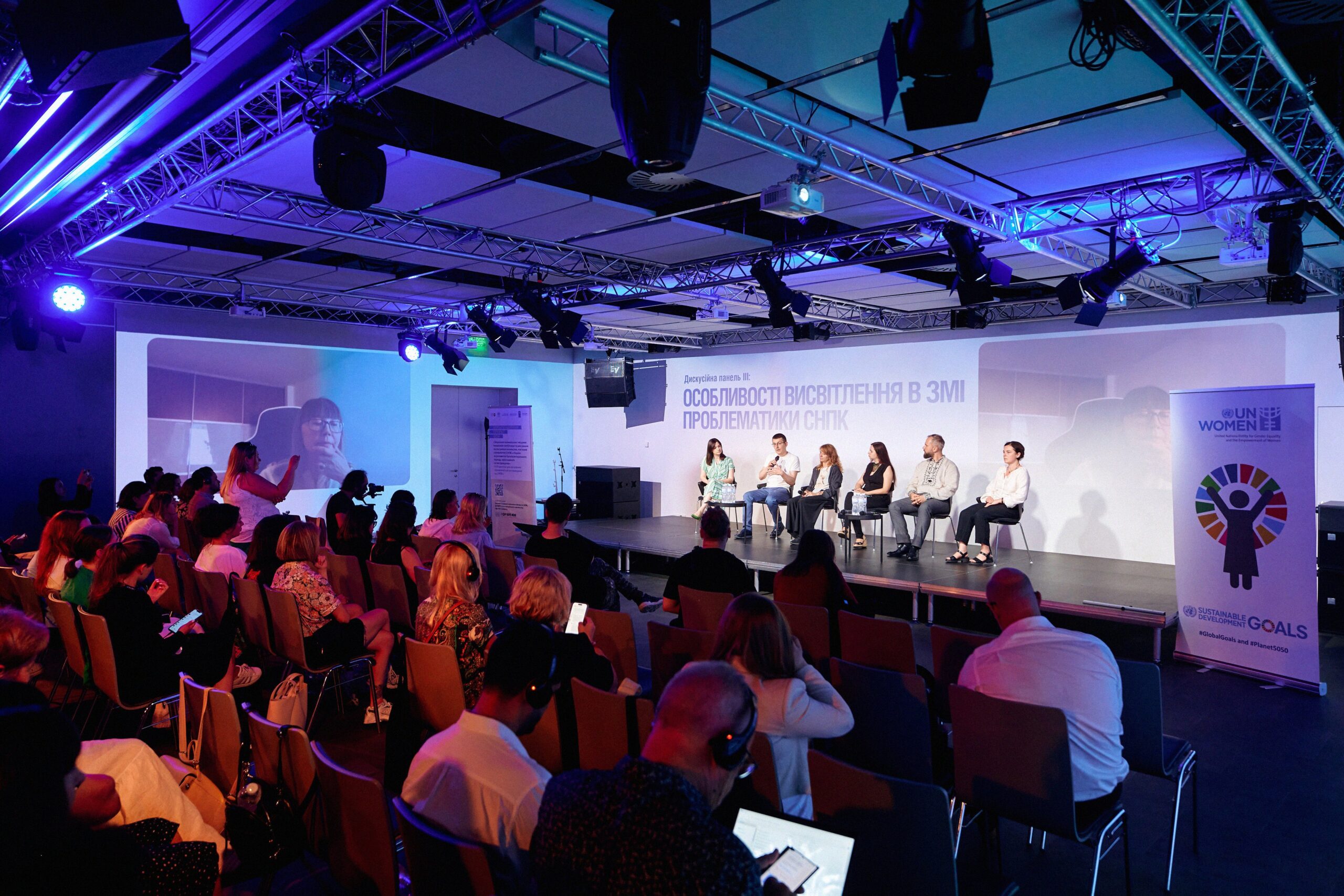
On July 2, the International Forum “Post-Traumatic Growth of Women Affected by Conflict-Related Sexual Violence in the Context of Prolonged War — Let’s Go, Sisters!” took place in Kyiv and online. The event aimed to highlight the issue of conflict-related sexual violence (CRSV). Ukrainian women, experts, government officials, and human rights advocates from around the world drew attention to this problem. Press Officer of the Center for Civil Liberties, Anna Trushova, and Senior Manager of the War Consequences Mitigation Program, Natalia Yashchuk, also participated in the panel discussions.
Natalia Yashchuk participated in the panel discussion titled “How to Ensure Comprehensive State Protection for Survivors of Illegal Detention and Torture Due to Russian Aggression?”
“The primary focus is establishing the status of individuals unlawfully detained due to Russian aggression. This is quite challenging primarily because of the lack of information about the detention of civilians in places of confinement by the aggressor country. By creating a simulated National Information Bureau in Russia, the aggressor has once again confirmed its unwillingness to adhere to international norms and regulations. However, we urge NGOs and states to enable the process of informing people leaving occupied territories via third countries to report crimes committed against them to state authorities. Likewise, if there is knowledge of illegal detention or forced disappearance of people in occupied territories, it is crucial to follow the procedure of reporting to law enforcement agencies, the National Information Bureau, the Coordination Headquarters on Prisoner-of-War Issues, or the joint center of the SBU,” Natalia emphasized.
Anna Trushova participated in Panel Discussion III: “Media Coverage of Conflict-Related Sexual Violence Issues. Informing the Public and Victims. The Importance of Documenting Russian War Crimes in the Context of Conflict-Related Sexual Violence in Ukraine.”
During her presentation, Anna Trushova shared the Center for Civil Liberties’ experience in documenting war crimes, including sexual violence. She highlighted that since the beginning of the full-scale invasion, the “Tribunal for Putin” initiative, established by the organization, has documented over 77,000 war crimes, including illegal detentions, rapes, and murders. Anna also discussed a successful case from the Center’s experience, illustrating how cooperation with the media played a crucial role:
“During one of our field trips to document war crimes in Chernihiv region, we learned about the story of a math teacher who had been abducted from her parental home by the occupiers and spent over six months in Russian prisons. We shared her story with everyone: it was covered by The New Yorker, The Washington Post, and other international publications. Thanks to such widespread media attention (coupled with extensive advocacy work by human rights defenders), Viktoria Andrusha was able to return home. We gave her some time to recover, and then decided as a team to create a documentary film based on her testimonies, which we are now showing at various foreign platforms,” Anna shared.
The speaker also shared several tips for covering sensitive topics such as sexual violence during war in the media:
- Avoid turning journalism into a pursuit of “hot” facts for clickable headlines. Respect for the survivors and their stories should be the top priority.
- Journalists must take responsibility not to retraumatize individuals. This means being sensitive to the needs of survivors, avoiding graphic details of violence, and allowing them to control the narrative of their experience.
- Communicators, as a bridge between journalists and survivors, also bear responsibility. They should always consider the emotional and psychological state of the survivors and their families, and assist them in communicating with the media.
- It is important to remember that publicity in such cases is still significant. Publicizing crimes can raise awareness among a broader audience, which may help hold perpetrators accountable and prevent similar crimes in the future.
Anna Trushova emphasized that finding a balance between informing the public and respecting the victims is a challenging task that requires empathy, professionalism, and collaboration among journalists, communicators, and the survivors themselves.
Center for Civil Liberties operates with the support of the European Union.

